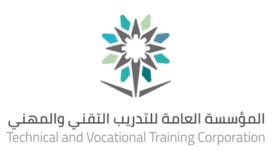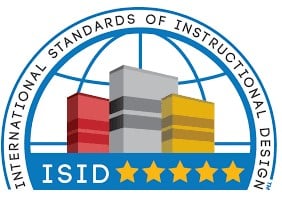Training bag: Theories, concepts and principles of effective learning
Introduction to the program
The concept of learning Learning as a process and product: Is the internal mental process that takes place within the mind of the living being and it is difficult to measure that process and infer it from the apparent performance and whenever we find from experts who agree with others because of the many definitions and different theories from Hana three concepts appeared 1- Education as a process of remembering: This concept is linked to the psychology of the scientist Harpert, who saw that a young child was born with his mind like a white page, i.e. that this concept considered the mind a store of information where information was stored until it was summoned. 2- Learning as a training process for the mind: This concept is linked to the theory of formal training of the English world (Luke) and Locke says that the mind is divided into queens queen of remembrance and another for imagination and others for reflection – perception and etc. and that learning results from the training of these queens 3- Education as a process of change and modification in the behavior of the individual: As psychological research and scientific theories progress, it has been found that a child from a young age affects and influences the behavior of others interacts with them and acquires new behavioral methods and then these methods begin to become progressively complicated.
In our success skills for human development as experts in education and training, we have designed a training bag focused on meeting the actual need of educators and seeking to provide them with knowledge and expertise in the field of learning theories, supported by the experience of our trainers and consultants in the field of education and supervisory scientific and continuous improvement of the training bag by repeating the presentation of the training bag in more than one Arab countries, which contributed to the training bag containing practical experiences in the field of learning theories and it is good for us to provide you with the following View the training bag wishing you pleasure and benefit
By the end of this training program, we expect that the participants have achieved the following results (God willing): Develop the knowledge, skills and expertise needed for teachers working in the field of general education or technical education by introducing them to theories of learning and the difference between education and learning and the importance of activating those theories in arousing motivation among the student to learn.
In this training program, the participant will learn, God willing: • Learning (what is learning? , Learning models: Classic sign, Pavlov’s studies, Post-Pavlov studies, Classic path applications, Procedural signaling, Thorndy’s studies, Skinner studies, Strengthening punishment Composition sequencing Primac principle, Update Skinner’s understanding, Cognitive and social learning, Learning by observation, Learning by model, Brain research-based learning. What does he know and what he learns? Power and learning. Behavioral, cognitive and human learning theories. • Learning theory for Bloom (Bloom rating (learning classification). Description of the education and learning system (educated teacher subject) and its different forms. • Distinguish between learning stages and learn how to learn (Batsion learning theory). • List the causes of learning resistance. • Learning theories (theoretical behavioral theory, cognitive theoretical theory). • Memory (concept and definition, memory measurement, memory patterns: 1 sensory memory, 2 short-term memory 3 long-term memory, information processing direction, memory models: 1 separate memory models, 2 related memory models, 3 Sosa models based on brain theory, 4 input of distributed balancing processes, oblivion and its theories, memory strengthening strategies). • Stages of cognitive development (sensory motor stage, Pre-run, Physical operation phase, The systematic operation phase. • Basic elements of Paget (adapting adaptive co-oration) • Motivational (definition, its functions and benefits Motivational classification, Some basic motives: Sleep Dreams Hunger the most dangerous driving aggression, Pain, Some important types of motivation: The “achievement” collection motive, cognitive motivation, efficiency motive, self-realization motive, The payer of the pride. • Social interactions: Interaction between the individual and the other and between the individual and the group to meet the minds (introduction, What is the interaction of the individual with the other and with the group How to understand the behavior of others: 1- the composition of the impression, 2 specific attribution or assumption that lies behind the behavior Trends and trends and their change: 1 components of tendencies, 2 Measure directions, 2. Teaching and continuing tendencies or trends, 4 Change tendencies or directions, Negative and positive social interactions: 1 Friendship and intimacy, 2 Altruism, 3 Aggression, Social influence and influence: 1 Community standards, 2 Compliance, 3 Polarization within the community, 4 The disease of the thinking of the community.
To order:
info@hakapetk.com 00966 – whatsapp+Viber 0567518848 available
™IMAS
ضمن مفاهيم تصميم الأنظمة المنهجية في التدريب، تأتي مصفوفة IMAS كأداة من أدوات صناعة التدريب المعاصرة، والتي تتعامل مع آلية تجميع عناصر الحقيبة التدريبية في شكل متكامل ومتماسك لضمان توافق هذه العناصر مع تحقيق أهداف التدريب ورفع كفاءة الأداء مشارك ومدرب ومنظم. إنه يمكّن المطور من تطوير سيناريو تدريب احترافي مدروس جيدًا وإدارة وقت الجلسة التدريبية. يمكن للجلسة معالجة أي موضوع.

المؤسسة العامة للتدريب التقني والمهني
صممت منهجية خاصة بالجودة الداخلية في الوحدات التدريبية التابعة لها، حيث تشمل على خمسة معايير رئيسية، تتضمن الإدارة والقيادة، والمدربين، والخدمات المقدمة للمتدربين، والمناهج، وبيئة التدريب، وذلك بهدف تطوير جودة التدريب المقدم في المنشآت التدريبية لمواكبة حاجة سوق العمل المحلي.

™ISID
يعد أول برنامج من نوعه في تقييم وتصنيف الحقائب التدريبية ويهدف إلى أن يكون مرجعاً مهماً للشركات والمؤسسات لضمان جودة التدريب المقدم لكوادرها من أجل تطوير الأداء وتطويره وتحسينه. إن جعل هذه المعايير دولية ليس فقط لأنها منتشرة في أكثر من قارة واحدة ومئات البلدان والمنظمات، ولكن أيضًا لأنها متوافقة مع العديد. تقنيات أسترالية ويابانية وكندية وأمريكية.
Introduction to the program
The concept of learning Learning as a process and product: Is the internal mental process that takes place within the mind of the living being and it is difficult to measure that process and infer it from the apparent performance and whenever we find from experts who agree with others because of the many definitions and different theories from Hana three concepts appeared 1- Education as a process of remembering: This concept is linked to the psychology of the scientist Harpert, who saw that a young child was born with his mind like a white page, i.e. that this concept considered the mind a store of information where information was stored until it was summoned. 2- Learning as a training process for the mind: This concept is linked to the theory of formal training of the English world (Luke) and Locke says that the mind is divided into queens queen of remembrance and another for imagination and others for reflection – perception and etc. and that learning results from the training of these queens 3- Education as a process of change and modification in the behavior of the individual: As psychological research and scientific theories progress, it has been found that a child from a young age affects and influences the behavior of others interacts with them and acquires new behavioral methods and then these methods begin to become progressively complicated.
In our success skills for human development as experts in education and training, we have designed a training bag focused on meeting the actual need of educators and seeking to provide them with knowledge and expertise in the field of learning theories, supported by the experience of our trainers and consultants in the field of education and supervisory scientific and continuous improvement of the training bag by repeating the presentation of the training bag in more than one Arab countries, which contributed to the training bag containing practical experiences in the field of learning theories and it is good for us to provide you with the following View the training bag wishing you pleasure and benefit
By the end of this training program, we expect that the participants have achieved the following results (God willing): Develop the knowledge, skills and expertise needed for teachers working in the field of general education or technical education by introducing them to theories of learning and the difference between education and learning and the importance of activating those theories in arousing motivation among the student to learn.
In this training program, the participant will learn, God willing: • Learning (what is learning? , Learning models: Classic sign, Pavlov’s studies, Post-Pavlov studies, Classic path applications, Procedural signaling, Thorndy’s studies, Skinner studies, Strengthening punishment Composition sequencing Primac principle, Update Skinner’s understanding, Cognitive and social learning, Learning by observation, Learning by model, Brain research-based learning. What does he know and what he learns? Power and learning. Behavioral, cognitive and human learning theories. • Learning theory for Bloom (Bloom rating (learning classification). Description of the education and learning system (educated teacher subject) and its different forms. • Distinguish between learning stages and learn how to learn (Batsion learning theory). • List the causes of learning resistance. • Learning theories (theoretical behavioral theory, cognitive theoretical theory). • Memory (concept and definition, memory measurement, memory patterns: 1 sensory memory, 2 short-term memory 3 long-term memory, information processing direction, memory models: 1 separate memory models, 2 related memory models, 3 Sosa models based on brain theory, 4 input of distributed balancing processes, oblivion and its theories, memory strengthening strategies). • Stages of cognitive development (sensory motor stage, Pre-run, Physical operation phase, The systematic operation phase. • Basic elements of Paget (adapting adaptive co-oration) • Motivational (definition, its functions and benefits Motivational classification, Some basic motives: Sleep Dreams Hunger the most dangerous driving aggression, Pain, Some important types of motivation: The “achievement” collection motive, cognitive motivation, efficiency motive, self-realization motive, The payer of the pride. • Social interactions: Interaction between the individual and the other and between the individual and the group to meet the minds (introduction, What is the interaction of the individual with the other and with the group How to understand the behavior of others: 1- the composition of the impression, 2 specific attribution or assumption that lies behind the behavior Trends and trends and their change: 1 components of tendencies, 2 Measure directions, 2. Teaching and continuing tendencies or trends, 4 Change tendencies or directions, Negative and positive social interactions: 1 Friendship and intimacy, 2 Altruism, 3 Aggression, Social influence and influence: 1 Community standards, 2 Compliance, 3 Polarization within the community, 4 The disease of the thinking of the community.
To order:
info@hakapetk.com 00966 – whatsapp+Viber 0567518848 available
™IMAS
ضمن مفاهيم تصميم الأنظمة المنهجية في التدريب، تأتي مصفوفة IMAS كأداة من أدوات صناعة التدريب المعاصرة، والتي تتعامل مع آلية تجميع عناصر الحقيبة التدريبية في شكل متكامل ومتماسك لضمان توافق هذه العناصر مع تحقيق أهداف التدريب ورفع كفاءة الأداء مشارك ومدرب ومنظم. إنه يمكّن المطور من تطوير سيناريو تدريب احترافي مدروس جيدًا وإدارة وقت الجلسة التدريبية. يمكن للجلسة معالجة أي موضوع.

المؤسسة العامة للتدريب التقني والمهني
صممت منهجية خاصة بالجودة الداخلية في الوحدات التدريبية التابعة لها، حيث تشمل على خمسة معايير رئيسية، تتضمن الإدارة والقيادة، والمدربين، والخدمات المقدمة للمتدربين، والمناهج، وبيئة التدريب، وذلك بهدف تطوير جودة التدريب المقدم في المنشآت التدريبية لمواكبة حاجة سوق العمل المحلي.

™ISID
يعد أول برنامج من نوعه في تقييم وتصنيف الحقائب التدريبية ويهدف إلى أن يكون مرجعاً مهماً للشركات والمؤسسات لضمان جودة التدريب المقدم لكوادرها من أجل تطوير الأداء وتطويره وتحسينه. إن جعل هذه المعايير دولية ليس فقط لأنها منتشرة في أكثر من قارة واحدة ومئات البلدان والمنظمات، ولكن أيضًا لأنها متوافقة مع العديد. تقنيات أسترالية ويابانية وكندية وأمريكية.
There are no reviews yet.
Only logged in customers who have purchased this product may leave a review.
Introduction to the program
The concept of learning Learning as a process and product: Is the internal mental process that takes place within the mind of the living being and it is difficult to measure that process and infer it from the apparent performance and whenever we find from experts who agree with others because of the many definitions and different theories from Hana three concepts appeared 1- Education as a process of remembering: This concept is linked to the psychology of the scientist Harpert, who saw that a young child was born with his mind like a white page, i.e. that this concept considered the mind a store of information where information was stored until it was summoned. 2- Learning as a training process for the mind: This concept is linked to the theory of formal training of the English world (Luke) and Locke says that the mind is divided into queens queen of remembrance and another for imagination and others for reflection – perception and etc. and that learning results from the training of these queens 3- Education as a process of change and modification in the behavior of the individual: As psychological research and scientific theories progress, it has been found that a child from a young age affects and influences the behavior of others interacts with them and acquires new behavioral methods and then these methods begin to become progressively complicated.
In our success skills for human development as experts in education and training, we have designed a training bag focused on meeting the actual need of educators and seeking to provide them with knowledge and expertise in the field of learning theories, supported by the experience of our trainers and consultants in the field of education and supervisory scientific and continuous improvement of the training bag by repeating the presentation of the training bag in more than one Arab countries, which contributed to the training bag containing practical experiences in the field of learning theories and it is good for us to provide you with the following View the training bag wishing you pleasure and benefit
By the end of this training program, we expect that the participants have achieved the following results (God willing): Develop the knowledge, skills and expertise needed for teachers working in the field of general education or technical education by introducing them to theories of learning and the difference between education and learning and the importance of activating those theories in arousing motivation among the student to learn.
In this training program, the participant will learn, God willing: • Learning (what is learning? , Learning models: Classic sign, Pavlov’s studies, Post-Pavlov studies, Classic path applications, Procedural signaling, Thorndy’s studies, Skinner studies, Strengthening punishment Composition sequencing Primac principle, Update Skinner’s understanding, Cognitive and social learning, Learning by observation, Learning by model, Brain research-based learning. What does he know and what he learns? Power and learning. Behavioral, cognitive and human learning theories. • Learning theory for Bloom (Bloom rating (learning classification). Description of the education and learning system (educated teacher subject) and its different forms. • Distinguish between learning stages and learn how to learn (Batsion learning theory). • List the causes of learning resistance. • Learning theories (theoretical behavioral theory, cognitive theoretical theory). • Memory (concept and definition, memory measurement, memory patterns: 1 sensory memory, 2 short-term memory 3 long-term memory, information processing direction, memory models: 1 separate memory models, 2 related memory models, 3 Sosa models based on brain theory, 4 input of distributed balancing processes, oblivion and its theories, memory strengthening strategies). • Stages of cognitive development (sensory motor stage, Pre-run, Physical operation phase, The systematic operation phase. • Basic elements of Paget (adapting adaptive co-oration) • Motivational (definition, its functions and benefits Motivational classification, Some basic motives: Sleep Dreams Hunger the most dangerous driving aggression, Pain, Some important types of motivation: The “achievement” collection motive, cognitive motivation, efficiency motive, self-realization motive, The payer of the pride. • Social interactions: Interaction between the individual and the other and between the individual and the group to meet the minds (introduction, What is the interaction of the individual with the other and with the group How to understand the behavior of others: 1- the composition of the impression, 2 specific attribution or assumption that lies behind the behavior Trends and trends and their change: 1 components of tendencies, 2 Measure directions, 2. Teaching and continuing tendencies or trends, 4 Change tendencies or directions, Negative and positive social interactions: 1 Friendship and intimacy, 2 Altruism, 3 Aggression, Social influence and influence: 1 Community standards, 2 Compliance, 3 Polarization within the community, 4 The disease of the thinking of the community.
To order:
info@hakapetk.com 00966 – whatsapp+Viber 0567518848 available
ضمن مفاهيم تصميم الأنظمة المنهجية في التدريب ،تأتي مصفوفة IMAS كأداة من أدوات صناعة التدريب المعاصرة ،والتي تتعامل مع آلية تجميع عناصر الحقيبة التدريبية في شكل متكامل ومتماسك لضمان توافق هذه العناصر مع تحقيق أهداف التدريب ورفع كفاءة الأداء مشارك ومدرب ومنظم. إنه يمكّن المطور من تطوير سيناريو تدريب احترافي مدروس جيدًا وإدارة وقت الجلسة التدريبية. يمكن للجلسة معالجة أي موضوع.

صممت منهجية خاصة بالجودة الداخلية في الوحدات التدريبية التابعة لها، حيث تشمل على خمسة معايير رئيسية، تتضمن الإدارة والقيادة، والمدربين، والخدمات المقدمة للمتدربين، والمناهج، وبيئة التدريب، وذلك بهدف تطوير جودة التدريب المقدم في المنشآت التدريبية لمواكبة حاجة سوق العمل المحلي.

يعد أول برنامع من نوعه في تقييم وتصنيف الحقائب التدريبية،ويهدف إلى أن يكون مرجعاً مهماً للشركات والمؤسسات لضمان جودة التدريب المقدم لكوادرها من أجل تطوير الأداء وتطويره وتحسينه. إن جعل هذه المعايير دولية ليس فقط لأنها منتشرة في أكثر من قارة واحدة ومئات البلدان والمنظمات ،ولكن أيضًا لأنها متوافقة مع العديد. تقنيات أسترالية ويابانية وكندية وأمريكية.
There are no reviews yet.
Only logged in customers who have purchased this product may leave a review.







Training bag: Theories, concepts and principles of effective learning
Introduction to the program
The concept of learning Learning as a process and product: Is the internal mental process that takes place within the mind of the living being and it is difficult to measure that process and infer it from the apparent performance and whenever we find from experts who agree with others because of the many definitions and different theories from Hana three concepts appeared 1- Education as a process of remembering: This concept is linked to the psychology of the scientist Harpert, who saw that a young child was born with his mind like a white page, i.e. that this concept considered the mind a store of information where information was stored until it was summoned. 2- Learning as a training process for the mind: This concept is linked to the theory of formal training of the English world (Luke) and Locke says that the mind is divided into queens queen of remembrance and another for imagination and others for reflection – perception and etc. and that learning results from the training of these queens 3- Education as a process of change and modification in the behavior of the individual: As psychological research and scientific theories progress, it has been found that a child from a young age affects and influences the behavior of others interacts with them and acquires new behavioral methods and then these methods begin to become progressively complicated.
In our success skills for human development as experts in education and training, we have designed a training bag focused on meeting the actual need of educators and seeking to provide them with knowledge and expertise in the field of learning theories, supported by the experience of our trainers and consultants in the field of education and supervisory scientific and continuous improvement of the training bag by repeating the presentation of the training bag in more than one Arab countries, which contributed to the training bag containing practical experiences in the field of learning theories and it is good for us to provide you with the following View the training bag wishing you pleasure and benefit
By the end of this training program, we expect that the participants have achieved the following results (God willing): Develop the knowledge, skills and expertise needed for teachers working in the field of general education or technical education by introducing them to theories of learning and the difference between education and learning and the importance of activating those theories in arousing motivation among the student to learn.
In this training program, the participant will learn, God willing: • Learning (what is learning? , Learning models: Classic sign, Pavlov’s studies, Post-Pavlov studies, Classic path applications, Procedural signaling, Thorndy’s studies, Skinner studies, Strengthening punishment Composition sequencing Primac principle, Update Skinner’s understanding, Cognitive and social learning, Learning by observation, Learning by model, Brain research-based learning. What does he know and what he learns? Power and learning. Behavioral, cognitive and human learning theories. • Learning theory for Bloom (Bloom rating (learning classification). Description of the education and learning system (educated teacher subject) and its different forms. • Distinguish between learning stages and learn how to learn (Batsion learning theory). • List the causes of learning resistance. • Learning theories (theoretical behavioral theory, cognitive theoretical theory). • Memory (concept and definition, memory measurement, memory patterns: 1 sensory memory, 2 short-term memory 3 long-term memory, information processing direction, memory models: 1 separate memory models, 2 related memory models, 3 Sosa models based on brain theory, 4 input of distributed balancing processes, oblivion and its theories, memory strengthening strategies). • Stages of cognitive development (sensory motor stage, Pre-run, Physical operation phase, The systematic operation phase. • Basic elements of Paget (adapting adaptive co-oration) • Motivational (definition, its functions and benefits Motivational classification, Some basic motives: Sleep Dreams Hunger the most dangerous driving aggression, Pain, Some important types of motivation: The “achievement” collection motive, cognitive motivation, efficiency motive, self-realization motive, The payer of the pride. • Social interactions: Interaction between the individual and the other and between the individual and the group to meet the minds (introduction, What is the interaction of the individual with the other and with the group How to understand the behavior of others: 1- the composition of the impression, 2 specific attribution or assumption that lies behind the behavior Trends and trends and their change: 1 components of tendencies, 2 Measure directions, 2. Teaching and continuing tendencies or trends, 4 Change tendencies or directions, Negative and positive social interactions: 1 Friendship and intimacy, 2 Altruism, 3 Aggression, Social influence and influence: 1 Community standards, 2 Compliance, 3 Polarization within the community, 4 The disease of the thinking of the community.
To order:
info@hakapetk.com 00966 – whatsapp+Viber 0567518848 available
™IMAS
ضمن مفاهيم تصميم الأنظمة المنهجية في التدريب، تأتي مصفوفة IMAS كأداة من أدوات صناعة التدريب المعاصرة، والتي تتعامل مع آلية تجميع عناصر الحقيبة التدريبية في شكل متكامل ومتماسك لضمان توافق هذه العناصر مع تحقيق أهداف التدريب ورفع كفاءة الأداء مشارك ومدرب ومنظم. إنه يمكّن المطور من تطوير سيناريو تدريب احترافي مدروس جيدًا وإدارة وقت الجلسة التدريبية. يمكن للجلسة معالجة أي موضوع.

المؤسسة العامة للتدريب التقني والمهني
صممت منهجية خاصة بالجودة الداخلية في الوحدات التدريبية التابعة لها، حيث تشمل على خمسة معايير رئيسية، تتضمن الإدارة والقيادة، والمدربين، والخدمات المقدمة للمتدربين، والمناهج، وبيئة التدريب، وذلك بهدف تطوير جودة التدريب المقدم في المنشآت التدريبية لمواكبة حاجة سوق العمل المحلي.

™ISID
يعد أول برنامج من نوعه في تقييم وتصنيف الحقائب التدريبية ويهدف إلى أن يكون مرجعاً مهماً للشركات والمؤسسات لضمان جودة التدريب المقدم لكوادرها من أجل تطوير الأداء وتطويره وتحسينه. إن جعل هذه المعايير دولية ليس فقط لأنها منتشرة في أكثر من قارة واحدة ومئات البلدان والمنظمات، ولكن أيضًا لأنها متوافقة مع العديد. تقنيات أسترالية ويابانية وكندية وأمريكية.
There are no reviews yet.
Only logged in customers who have purchased this product may leave a review.
Introduction to the program
The concept of learning Learning as a process and product: Is the internal mental process that takes place within the mind of the living being and it is difficult to measure that process and infer it from the apparent performance and whenever we find from experts who agree with others because of the many definitions and different theories from Hana three concepts appeared 1- Education as a process of remembering: This concept is linked to the psychology of the scientist Harpert, who saw that a young child was born with his mind like a white page, i.e. that this concept considered the mind a store of information where information was stored until it was summoned. 2- Learning as a training process for the mind: This concept is linked to the theory of formal training of the English world (Luke) and Locke says that the mind is divided into queens queen of remembrance and another for imagination and others for reflection – perception and etc. and that learning results from the training of these queens 3- Education as a process of change and modification in the behavior of the individual: As psychological research and scientific theories progress, it has been found that a child from a young age affects and influences the behavior of others interacts with them and acquires new behavioral methods and then these methods begin to become progressively complicated.
In our success skills for human development as experts in education and training, we have designed a training bag focused on meeting the actual need of educators and seeking to provide them with knowledge and expertise in the field of learning theories, supported by the experience of our trainers and consultants in the field of education and supervisory scientific and continuous improvement of the training bag by repeating the presentation of the training bag in more than one Arab countries, which contributed to the training bag containing practical experiences in the field of learning theories and it is good for us to provide you with the following View the training bag wishing you pleasure and benefit
By the end of this training program, we expect that the participants have achieved the following results (God willing): Develop the knowledge, skills and expertise needed for teachers working in the field of general education or technical education by introducing them to theories of learning and the difference between education and learning and the importance of activating those theories in arousing motivation among the student to learn.
In this training program, the participant will learn, God willing: • Learning (what is learning? , Learning models: Classic sign, Pavlov’s studies, Post-Pavlov studies, Classic path applications, Procedural signaling, Thorndy’s studies, Skinner studies, Strengthening punishment Composition sequencing Primac principle, Update Skinner’s understanding, Cognitive and social learning, Learning by observation, Learning by model, Brain research-based learning. What does he know and what he learns? Power and learning. Behavioral, cognitive and human learning theories. • Learning theory for Bloom (Bloom rating (learning classification). Description of the education and learning system (educated teacher subject) and its different forms. • Distinguish between learning stages and learn how to learn (Batsion learning theory). • List the causes of learning resistance. • Learning theories (theoretical behavioral theory, cognitive theoretical theory). • Memory (concept and definition, memory measurement, memory patterns: 1 sensory memory, 2 short-term memory 3 long-term memory, information processing direction, memory models: 1 separate memory models, 2 related memory models, 3 Sosa models based on brain theory, 4 input of distributed balancing processes, oblivion and its theories, memory strengthening strategies). • Stages of cognitive development (sensory motor stage, Pre-run, Physical operation phase, The systematic operation phase. • Basic elements of Paget (adapting adaptive co-oration) • Motivational (definition, its functions and benefits Motivational classification, Some basic motives: Sleep Dreams Hunger the most dangerous driving aggression, Pain, Some important types of motivation: The “achievement” collection motive, cognitive motivation, efficiency motive, self-realization motive, The payer of the pride. • Social interactions: Interaction between the individual and the other and between the individual and the group to meet the minds (introduction, What is the interaction of the individual with the other and with the group How to understand the behavior of others: 1- the composition of the impression, 2 specific attribution or assumption that lies behind the behavior Trends and trends and their change: 1 components of tendencies, 2 Measure directions, 2. Teaching and continuing tendencies or trends, 4 Change tendencies or directions, Negative and positive social interactions: 1 Friendship and intimacy, 2 Altruism, 3 Aggression, Social influence and influence: 1 Community standards, 2 Compliance, 3 Polarization within the community, 4 The disease of the thinking of the community.
To order:
info@hakapetk.com 00966 – whatsapp+Viber 0567518848 available
™IMAS
ضمن مفاهيم تصميم الأنظمة المنهجية في التدريب، تأتي مصفوفة IMAS كأداة من أدوات صناعة التدريب المعاصرة، والتي تتعامل مع آلية تجميع عناصر الحقيبة التدريبية في شكل متكامل ومتماسك لضمان توافق هذه العناصر مع تحقيق أهداف التدريب ورفع كفاءة الأداء مشارك ومدرب ومنظم. إنه يمكّن المطور من تطوير سيناريو تدريب احترافي مدروس جيدًا وإدارة وقت الجلسة التدريبية. يمكن للجلسة معالجة أي موضوع.

المؤسسة العامة للتدريب التقني والمهني
صممت منهجية خاصة بالجودة الداخلية في الوحدات التدريبية التابعة لها، حيث تشمل على خمسة معايير رئيسية، تتضمن الإدارة والقيادة، والمدربين، والخدمات المقدمة للمتدربين، والمناهج، وبيئة التدريب، وذلك بهدف تطوير جودة التدريب المقدم في المنشآت التدريبية لمواكبة حاجة سوق العمل المحلي.

™ISID
يعد أول برنامج من نوعه في تقييم وتصنيف الحقائب التدريبية ويهدف إلى أن يكون مرجعاً مهماً للشركات والمؤسسات لضمان جودة التدريب المقدم لكوادرها من أجل تطوير الأداء وتطويره وتحسينه. إن جعل هذه المعايير دولية ليس فقط لأنها منتشرة في أكثر من قارة واحدة ومئات البلدان والمنظمات، ولكن أيضًا لأنها متوافقة مع العديد. تقنيات أسترالية ويابانية وكندية وأمريكية.
There are no reviews yet.
Only logged in customers who have purchased this product may leave a review.
Introduction to the program
The concept of learning Learning as a process and product: Is the internal mental process that takes place within the mind of the living being and it is difficult to measure that process and infer it from the apparent performance and whenever we find from experts who agree with others because of the many definitions and different theories from Hana three concepts appeared 1- Education as a process of remembering: This concept is linked to the psychology of the scientist Harpert, who saw that a young child was born with his mind like a white page, i.e. that this concept considered the mind a store of information where information was stored until it was summoned. 2- Learning as a training process for the mind: This concept is linked to the theory of formal training of the English world (Luke) and Locke says that the mind is divided into queens queen of remembrance and another for imagination and others for reflection – perception and etc. and that learning results from the training of these queens 3- Education as a process of change and modification in the behavior of the individual: As psychological research and scientific theories progress, it has been found that a child from a young age affects and influences the behavior of others interacts with them and acquires new behavioral methods and then these methods begin to become progressively complicated.
In our success skills for human development as experts in education and training, we have designed a training bag focused on meeting the actual need of educators and seeking to provide them with knowledge and expertise in the field of learning theories, supported by the experience of our trainers and consultants in the field of education and supervisory scientific and continuous improvement of the training bag by repeating the presentation of the training bag in more than one Arab countries, which contributed to the training bag containing practical experiences in the field of learning theories and it is good for us to provide you with the following View the training bag wishing you pleasure and benefit
By the end of this training program, we expect that the participants have achieved the following results (God willing): Develop the knowledge, skills and expertise needed for teachers working in the field of general education or technical education by introducing them to theories of learning and the difference between education and learning and the importance of activating those theories in arousing motivation among the student to learn.
In this training program, the participant will learn, God willing: • Learning (what is learning? , Learning models: Classic sign, Pavlov’s studies, Post-Pavlov studies, Classic path applications, Procedural signaling, Thorndy’s studies, Skinner studies, Strengthening punishment Composition sequencing Primac principle, Update Skinner’s understanding, Cognitive and social learning, Learning by observation, Learning by model, Brain research-based learning. What does he know and what he learns? Power and learning. Behavioral, cognitive and human learning theories. • Learning theory for Bloom (Bloom rating (learning classification). Description of the education and learning system (educated teacher subject) and its different forms. • Distinguish between learning stages and learn how to learn (Batsion learning theory). • List the causes of learning resistance. • Learning theories (theoretical behavioral theory, cognitive theoretical theory). • Memory (concept and definition, memory measurement, memory patterns: 1 sensory memory, 2 short-term memory 3 long-term memory, information processing direction, memory models: 1 separate memory models, 2 related memory models, 3 Sosa models based on brain theory, 4 input of distributed balancing processes, oblivion and its theories, memory strengthening strategies). • Stages of cognitive development (sensory motor stage, Pre-run, Physical operation phase, The systematic operation phase. • Basic elements of Paget (adapting adaptive co-oration) • Motivational (definition, its functions and benefits Motivational classification, Some basic motives: Sleep Dreams Hunger the most dangerous driving aggression, Pain, Some important types of motivation: The “achievement” collection motive, cognitive motivation, efficiency motive, self-realization motive, The payer of the pride. • Social interactions: Interaction between the individual and the other and between the individual and the group to meet the minds (introduction, What is the interaction of the individual with the other and with the group How to understand the behavior of others: 1- the composition of the impression, 2 specific attribution or assumption that lies behind the behavior Trends and trends and their change: 1 components of tendencies, 2 Measure directions, 2. Teaching and continuing tendencies or trends, 4 Change tendencies or directions, Negative and positive social interactions: 1 Friendship and intimacy, 2 Altruism, 3 Aggression, Social influence and influence: 1 Community standards, 2 Compliance, 3 Polarization within the community, 4 The disease of the thinking of the community.
To order:
info@hakapetk.com 00966 – whatsapp+Viber 0567518848 available
ضمن مفاهيم تصميم الأنظمة المنهجية في التدريب ،تأتي مصفوفة IMAS كأداة من أدوات صناعة التدريب المعاصرة ،والتي تتعامل مع آلية تجميع عناصر الحقيبة التدريبية في شكل متكامل ومتماسك لضمان توافق هذه العناصر مع تحقيق أهداف التدريب ورفع كفاءة الأداء مشارك ومدرب ومنظم. إنه يمكّن المطور من تطوير سيناريو تدريب احترافي مدروس جيدًا وإدارة وقت الجلسة التدريبية. يمكن للجلسة معالجة أي موضوع.

صممت منهجية خاصة بالجودة الداخلية في الوحدات التدريبية التابعة لها، حيث تشمل على خمسة معايير رئيسية، تتضمن الإدارة والقيادة، والمدربين، والخدمات المقدمة للمتدربين، والمناهج، وبيئة التدريب، وذلك بهدف تطوير جودة التدريب المقدم في المنشآت التدريبية لمواكبة حاجة سوق العمل المحلي.

يعد أول برنامع من نوعه في تقييم وتصنيف الحقائب التدريبية،ويهدف إلى أن يكون مرجعاً مهماً للشركات والمؤسسات لضمان جودة التدريب المقدم لكوادرها من أجل تطوير الأداء وتطويره وتحسينه. إن جعل هذه المعايير دولية ليس فقط لأنها منتشرة في أكثر من قارة واحدة ومئات البلدان والمنظمات ،ولكن أيضًا لأنها متوافقة مع العديد. تقنيات أسترالية ويابانية وكندية وأمريكية.
There are no reviews yet.
Only logged in customers who have purchased this product may leave a review.






Training bag: Cycle how never to journey interior design correctly from the first time
This training material is designed to equip beginners and experienced professionals with the essential business skills and knowledge they need to succeed. Covering fundamental concepts such as finance, marketing, operations, and management, this training material provides a comprehensive foundation for individuals looking to enhance their business acumen and drive growth in their organizations.
This training material covers the topic of macroeconomics with a focus on the 2023 budgets and the USA economy. It includes information on government macroeconomic policies, as well as workbooks and multiple-choice tests to reinforce learning and assess understanding. Perfect for anyone looking to enhance their knowledge in macroeconomics and stay updated on the latest economic trends.
This training material provides a comprehensive understanding of generational differences and cultural diversity in India, focusing on effective management and leadership strategies. It also explores the impact of cultural diversity on industrial organizational strategy. With 20 hours of content, it equips participants with the knowledge and skills to navigate diverse workplaces in India and develop successful strategies for organizational growth and success.
This training material focuses on crisis management in the context of a pandemic, specifically addressing the economic response. It covers strategies and techniques for effectively managing the financial impact of a crisis, including government policies, business continuity planning, and financial risk management.
The Oxford Diploma in Business Fundamentals training material includes comprehensive content on essential business concepts and practices. The package also provides multiple-choice tests to measure knowledge acquisition and workbooks for practical application of concepts. Perfect for individuals seeking a comprehensive understanding of business fundamentals and preparing for professional certifications.
This training material is designed to help individuals prepare for the Entry Certification in Business Analysis exam. It provides practice exams that simulate the real exam experience, allowing participants to assess their knowledge and understanding of key concepts in business analysis. The material covers a wide range of topics, including requirements elicitation, stakeholder analysis, and process modeling.
Training bag: Theories, concepts and principles of effective learning
Reviews
There are no reviews yet.
Only logged in customers who have purchased this product may leave a review.